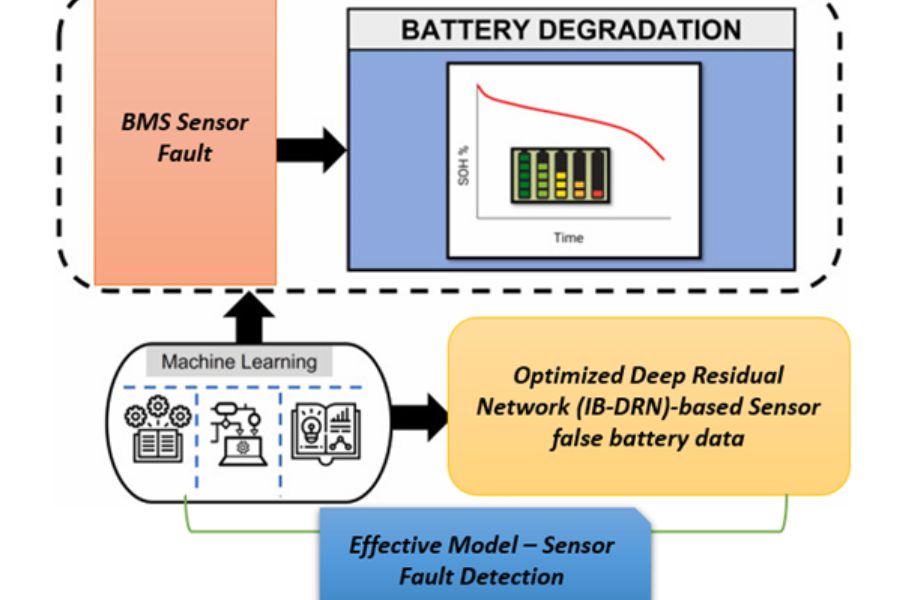Mr. Venkata Kosuru, has recently conducted groundbreaking research on Smart Battery Management Systems (BMS). The importance of developing smart, efficient, and safe driveline increase systems has become increasingly crucial with the growing popularity of EVs and the shift away from traditional IC engines. Mr. Kosuru's research goes beyond traditional approaches to identify potential faults in battery and management controller systems using intelligent sensing techniques.
While Mr. Kosuru's research primarily focuses on determining sensing faults, it also introduces outline measurements to consider safety in EV systems. His research has introduced the "marine predator's algorithm" (MPA) to simulate interactions between marine predators and their prey. The feature extraction model is based on the principle of the "sparse principal component analysis (SPCA)" theorem for data processing and reorganization from feature extractions.
Mr. Kosuru's research evaluated detailed and in-depth data points by considering sensor faults in all modes of drivetime executions. He developed a sophisticated BMS-Fault Sensing model that is less costly and more efficient, improving the functional safety of BMS systems. His research demonstrates that utmost safety can be achieved as the safety of EVs heavily depends on BMSs that control the electronics of rechargeable battery packs or individual cells.
To enhance the safety and reliability of BMSs, Mr. Kosuru's research proposes a false battery data detection and classification system based on incipient bat-optimized deep residual networks (IB-DRN). Compared to current approaches, the IB-DRN system achieves high accuracy (98%), precision (90%), recall (97%), and F1 score (94%). The proposed incipient bat-optimized deep residual network technique achieves a high level of accuracy (98%), especially when compared to the existing methods of artificial neural network (53%), support vector machine (73%), linear regression (82%), and Gaussian process regression (66%) currently in use.
Mr. Kosuru's research has been published in the prestigious and well-regarded MDPI journal "World Electric Vehicle Journal. His findings make an exceptional contribution to the Electric Vehicles (EV) industry, and the incorporation of his intelligent sensing techniques and advanced BMS-Fault Sensing model can bring significant improvements to the safety and reliability of EVs.

